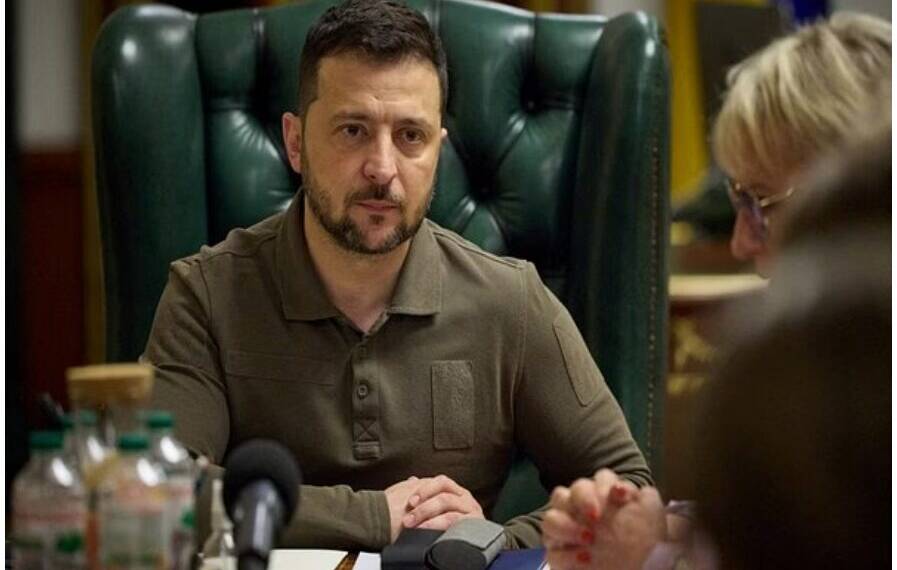In recent remarks, Ukrainian President Volodymyr Zelensky’s comments on Indian Prime Minister Narendra Modi’s visit have not only stirred significant controversy but also highlighted a troubling trend in diplomatic conduct. Zelensky’s criticisms of India for continuing to purchase Russian oil have drawn substantial backlash, revealing a tone of unwarranted entitlement and hypocrisy that undermines genuine diplomatic engagement.
Zelensky’s repeated chiding of India over its oil purchases, especially during Modi’s high-profile visit to Ukraine, appears to be less about constructive dialogue and more about leveraging the situation for political gain. For months, India has maintained a clear stance on its energy security needs amidst global volatility, articulating its position with considerable clarity. The timing of Zelensky’s critique—during Modi’s visit intended to foster dialogue and explore avenues for peace—was not just ill-timed but dismissive of India’s diplomatic efforts and strategic autonomy.
Further exacerbating the situation, Zelensky accused Russian President Vladimir Putin of showing disrespect towards Modi by bombing a children’s hospital in Kyiv during his visit. While the bombing of civilian targets is indeed a grave violation of international norms, Zelensky’s framing of these events appears to be an opportunistic attempt to gain sympathy and reinforce a narrative against Russia. This approach seems to overlook a critical point: Zelensky himself has recently ordered strikes on targets within Russia, a move that many might view as similarly provocative and destructive.
This selective outrage and the portrayal of Putin’s actions as uniquely disrespectful while ignoring Ukrainian actions that also escalate the conflict suggest a double standard. Zelensky’s criticisms not only undermine the nuanced nature of international diplomacy but also display a troubling degree of hypocrisy. By focusing on Putin’s actions while conveniently sidelining Ukraine’s own military tactics, Zelensky risks portraying himself as more interested in scoring political points than in genuine peace-building.
Moreover, Zelensky’s outright rejection of Modi’s peace initiative and his insistence that any future peace plans must align with Ukraine’s principles reflect a rigid and somewhat unrealistic stance. His statement that future peace summits, potentially hosted in India, would be conditional upon India’s alignment with previous summit agreements is condescending and undermines India’s role in global diplomacy. This kind of dictatorial rhetoric does not foster collaborative dialogue but rather seeks to impose unilateral conditions that disregard the complexities of international relations.
Zelensky’s demand for India to unequivocally side with Ukraine, rather than maintaining a balanced approach, suggests a form of diplomatic coercion. This attitude not only disregards India’s strategic interests and sovereign policies but also illustrates a form of “entitlement politics” that fails to appreciate the multi-faceted nature of global diplomacy.
Well, Zelensky’s recent comments reflect a concerning pattern of hypocrisy and disrespect in international relations. His criticisms of Modi and India, framed within the context of his own questionable actions and strategic demands, suggest a troubling disregard for the principles of mutual respect and constructive engagement. Genuine diplomacy requires a balanced approach, recognition of different national interests, and a commitment to meaningful dialogue—qualities that Zelensky’s recent rhetoric appears to notably lack.








